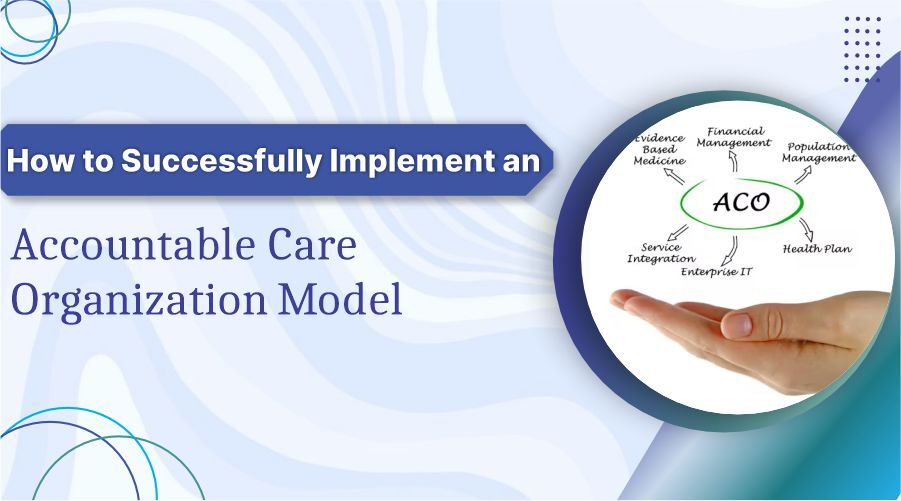How to Successfully Implement an Accountable Care Organization Model
September 7, 2024Accountable Care Organizations (ACOs) represent a transformative approach in the healthcare landscape, aiming to enhance the quality of care while reducing unnecessary costs. These organizations bring together various healthcare providers who collectively accept responsibility for the health outcomes and expenditures of their designated patient population.
This blog post seeks to unravel the complexities of implementing an ACO, illustrating its critical importance in fostering a healthcare system that is both economically sustainable and focused on patient welfare.
Understanding the ACO Framework
An Accountable Care Organization is a network of doctors, hospitals, and other healthcare providers that voluntarily coordinates care for their Medicare patients. An ERP solution can streamline operations and improve data management for Accountable Care Organizations, enabling them to focus on delivering high-quality, coordinated care. The goal of an ACO is to ensure that patients, especially the chronically ill, receive the right care at the right time, while avoiding unnecessary duplication of services and preventing medical errors.
Key Principles of ACOs
The foundation of ACOs rests on three pivotal principles:
- Patient-centered care: ACOs prioritize the health needs and preferences of patients, emphasizing personalized care plans and patient engagement in the decision-making process.
- Shared savings and risks: Providers in an ACO agree to assume the financial risks associated with patient care, in exchange for the potential to share in savings realized through efficient, effective care delivery.
- Performance measurement: ACOs are rigorously assessed on various performance metrics that track quality improvements and cost reductions, ensuring accountability.
Benefits of Adopting an ACO Model
Embracing the ACO model can lead to numerous benefits, including enhanced patient care coordination, reduced healthcare disparities, and significant financial savings, thereby aligning healthcare expenditures more closely with patient outcomes.
Planning and Preparation
Assessing Readiness
Before embarking on the ACO journey, healthcare entities must conduct a comprehensive assessment of their current capabilities and areas needing enhancement, ranging from staffing to operational processes.
Financial Analysis
A detailed financial analysis is crucial to understanding the potential economic impact of transitioning to an ACO, including initial costs, projected savings, and return on investment.
Technology Infrastructure Assessment
Robust technological support is vital for managing data, improving care delivery, and facilitating seamless communication across the network.
Building a Competent Team
The success of an ACO heavily relies on the interdisciplinary team’s ability to collaborate effectively. This section involves defining roles, responsibilities, and the requisite skills for each team member.
Importance of Leadership and Governance
Strong leadership and transparent governance structures are indispensable to guide the ACO’s strategic direction and ensure adherence to its mission and goals.
Legal and Regulatory Considerations
ACOs must navigate a complex regulatory environment, ensuring compliance with local healthcare laws and understanding federal requirements, such as those stipulated by the Centers for Medicare & Medicaid Services (CMS).
Read : Exploring the Benefits and Use Cases of Residential Proxies
Key Strategies for Successful Implementation
Establishing Clear Goals and Objectives
Defining clear, measurable goals related to health outcomes and financial performance is critical for monitoring progress and aligning the efforts of all stakeholders.
Technology Integration
Investing in advanced technologies like Electronic Health Records (EHRs) and data analytics tools is essential for efficient data management and real-time performance tracking.
Stakeholder Engagement
Engaging patients and their families, along with fostering partnerships with other healthcare providers, enhances the care network and supports the shared goals of the ACO.
Operational Execution
Effective Communication Strategies
Developing comprehensive communication plans both internally among team members and externally with patients and the community is crucial for the smooth operation of an ACO.
Managing Clinical and Financial Performance
Setting benchmarks, defining metrics, and establishing regular monitoring mechanisms are necessary to manage both clinical outcomes and financial performance effectively.
Continuous Improvement
Continuous assessment and adaptation based on performance data help in refining strategies and improving overall effectiveness. Training and development programs for staff are also vital for maintaining high standards of care.
Challenges and Pitfalls of ACO
Implementing accountable care organization solutions is not without challenges, such as resistance to change from providers accustomed to traditional care models and the technical difficulties in integrating disparate health information systems. Modern ERP solutions streamline data management and financial reporting for Accountable Care Organizations, enabling them to focus on improving patient outcomes and reducing costs. Strategies to overcome these challenges include robust change management processes and investing in compatible technology solutions.
Explore ACO Implementation: Connect with Our Experts Today!
Successfully implementing an accountable care organization solutions model requires meticulous planning, robust technology infrastructure, and continuous performance evaluation. For healthcare providers contemplating this transition, the journey promises significant rewards in terms of improved patient outcomes and financial viability. Pega Frameworks can streamline care coordination and population health management within an Accountable Care Organization Model. Those interested in exploring further are encouraged to seek detailed consultations or additional resources to support their decision-making process.
Author Bio:
TJ Patel is a compassionate advocate for holistic healthcare, leading with a vision at CareCoordinations. Passionate about merging technology with empathy, they drive innovative accountable care organization solutions that enhance patient comfort and care.



